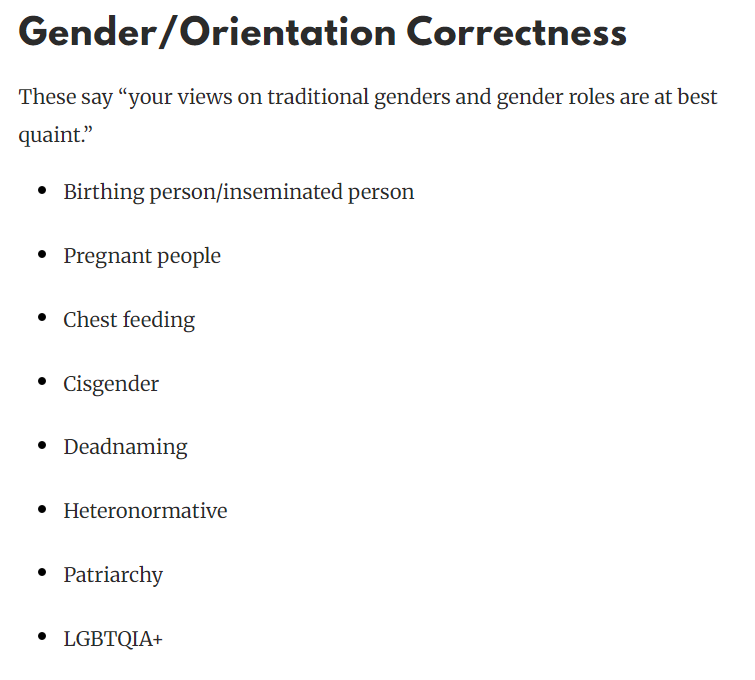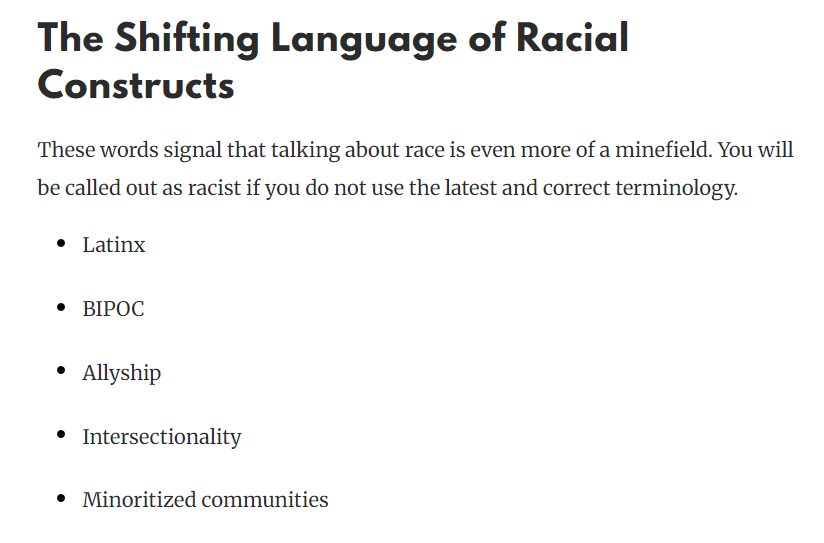A Democratic think tank is sounding the alarm about language that may be costing the party votes. They have released a comprehensive report urging fellow Democrats to abandon over 40 “woke” terms they argue alienate mainstream voters.
Third Way, a moderate Democratic organization, published findings on Friday identifying what they call problematic terminology that “no ordinary person would ever dream of saying.” The group contends that while these terms are intended to be inclusive, they often have the opposite effect on potential voters.
“Here we are focusing on the eggshell dance of political correctness which leaves the people we aim to reach cold or fearful of admonishment,” the report states. The authors argue that Democrats have fallen into a trap where “to please the few, we have alienated the many – especially on culture issues, where our language sounds superior, haughty and arrogant.”
Among the terms flagged for elimination are transgender-inclusive phrases like “birthing person” and “chest feeding,” which the report suggests should be replaced with more familiar language like “mothers” and “breast-feeding” that resonates with average Americans.

The think tank also takes aim at what it calls “seminar-like language,” including terms such as “cultural appropriation” and “systems of oppression.” Additionally, the report discourages “therapy-speak” terminology, specifically calling out “microaggressions,” “privilege,” and “holding space” as potentially off-putting to voters.
Third Way’s analysis extends beyond gender and racial terminology to encompass politically correct alternatives that may confuse rather than clarify. Terms like “Latinx,” “cisgender,” “the unhoused” instead of homeless, and “incarcerated people” all made the organization’s list of problematic language.

“The intent of this language is to include, broaden, empathize, accept, and embrace,” the report acknowledges. “The effect of this language is to sound like the extreme, divisive, elitist, and obfuscatory, enforcers of wokeness.”
The timing of this linguistic critique comes after Democrats faced electoral challenges in 2024, particularly losing ground among minority voters despite their efforts to use more inclusive language. The report notes that Democrats lost support from all non-white voter groups, raising questions about whether their messaging strategy backfired.
“Standing up to MAGA’s cruel attacks on gay and transgender people requires creating empathy and building a broad coalition, not confusing or shaming people who could otherwise be allies,” the authors argue.
The report also addresses crime-related terminology, warning against “explaining away crime” through euphemistic language that might suggest “the criminal is the victim” while “the victim is an afterthought.” The think tank emphasizes that voters “deserve to feel safe where they live, work, and go to school.”
Third Way’s analysis suggests that many Americans avoid political conversations not because they’re bigoted, but because “they fear cancellation, doxing, or trouble with HR if they make a mistake” or simply don’t understand specialized terminology and become distrustful of those who use it.
The report has already generated significant online debate, though Third Way’s Senior Vice President Lanae Erickson told reporters that the organization is receiving private support alongside public criticism. “As often happens when you say something controversial but deeply true in Democratic politics, we’re already getting countless private notes about how right and important this message is,” she said.
Critics have emerged, including Melanie D’Arrigo, executive director of the Campaign for New York Health. In a social media post, she dismissed Third Way as a group “funded by lobbyists from Wall Street, Big Oil and the insurance and real estate industries, who Democrats shouldn’t be listening to anyway.”

The think tank’s authors admit they’ve previously used some of these buzzwords in their own publications but now view terms like “patriarchy,” “radical transparency,” and other specialized language as “red flags for a big chunk of the American electorate.”


